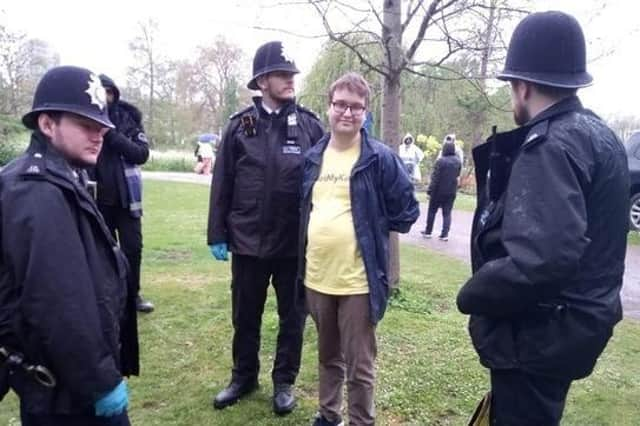Met Police doubles down on its policing tactics during the King’s coronation – despite over half of those arrested facing no further action


Officers arrested 64 people during the massive security operation in May this year – with 36 of them not facing charges or receiving fines.
One of them was Elliott Lee, a Green Party candidate in the Portsmouth City Council elections the same month.
Advertisement
Hide AdAdvertisement
Hide AdHe was initially arrested for breach of the peace in The Mall by police officers who found a megaphone in his backpack and claimed its use would disturb horses taking part in the procession.
He was further arrested for conspiracy to commit public nuisance before being released under investigation at 2am on the Sunday.
Lee later confirmed on social media that the Met had decided to drop its investigation.
On Wednesday, the force announced 18 suspects were told they would face no further action, and a further 18 people were informed there was insufficient evidence to provide a reasonable prospect of conviction.
Advertisement
Hide AdAdvertisement
Hide AdThose released without charge included six anti-monarchy protesters and three charity volunteers.
The Met previously said it would apologise to those wrongly arrested during the coronation if it is found officers made mistakes.
In a statement, Assistant Commissioner Matt Twist said among those facing no further action were people seen in “possession of glue, allen keys and other paraphernalia”.
Despite a high number of suspects not facing any further action, Mr Twist defended the police’s actions – saying their efforts were “consistent with the Met’s long history both of overseeing significant public events and also policing peaceful protest across London”.
Advertisement
Hide AdAdvertisement
Hide AdHe said: “Every day officers have to make decisions based on the information they have available to them at the time.
“Arrests do not always lead to charges and it is important to remember that the threshold for obtaining a charge is higher than that for making an arrest where an officer need only have suspicion of an offence.
“For example, three of those whose arrest did not lead to charge were found near the coronation route in the early hours of the day of the event in possession of glue, a banner from a known activist group, allen keys and other paraphernalia that could have been used to commit criminal damage or other disruption.”
Mr Twist continued: “I am confident the public would recognise why officers chose to make arrests in those circumstances, even though it was ultimately determined that a conviction at court would have been unlikely.
Advertisement
Hide AdAdvertisement
Hide Ad“In the hours before the coronation, we had intelligence that indicated activists were plotting to target the procession.
“We had real concerns that such efforts would not only disrupt an event of enormous national significance, but that they could also compromise the security and safety of participants and the public, including posing a risk of serious injury.
“Officers were briefed on these concerns and were directed to act appropriately in light of the emerging intelligence picture, which they did.
“Their efforts were consistent with the Met’s long history both of overseeing significant public events and also policing peaceful protest across London. Every year there are thousands of planned and spontaneous protest events that take place without incident.”
Advertisement
Hide AdAdvertisement
Hide AdMr Twist said any suggestion protest was prohibited during the coronation was “not supported by the evidence”.
He said: “We have previously expressed our regret that a number of people who were arrested and released later the same day with no further action taken against them were unable to participate in their planned protest.
“However any suggestion that protest was prohibited at the coronation is not supported by the evidence. There was significant protest activity at points along the procession route, notably in Trafalgar Square.
“I am proud of the efforts of all those involved in policing this historic event. It is thanks to their hard work and dedication that it was able to take place safely and without disruption or disorder.”
Advertisement
Hide AdAdvertisement
Hide AdBack in May, Mr Lee said: ‘There were hundreds of thousands of people in London on Saturday to demonstrate. Most of them were there to support the king but there was a group of us there for a peaceful protest against the monarchy.
"The right to protest has been stripped away, it’s an incredibly worrying precedent.”